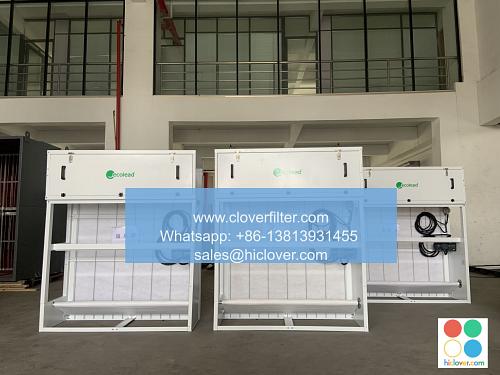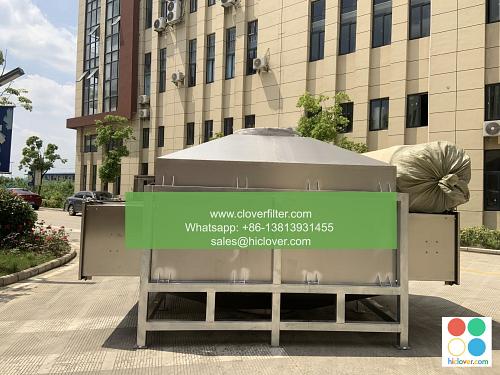Air Filter Replacement for the Healthcare Industry: A Guide

The healthcare industry is a critical sector that requires the highest standards of air quality to ensure the well-being and safety of patients, staff, and visitors. Air filter replacement is a crucial aspect of maintaining good indoor air quality (IAQ) in healthcare facilities, including hospitals, clinics, and nursing homes. In this article, we will delve into the importance of air filter replacement, the benefits of regular replacement, and the various application areas where air filters are used in the healthcare industry.
Why Air Filter Replacement is Crucial in Healthcare
Air filters play a vital role in removing airborne contaminants, such as dust, bacteria, viruses, and other microorganisms, from the air. In healthcare settings, these contaminants can pose significant risks to patients with compromised immune systems. Regular air filter replacement is essential to prevent the spread of airborne infections and maintain a healthy environment. The HEPA (High Efficiency Particulate Air) filter is a popular choice in healthcare, as it can capture 99.97% of particles as small as 0.3 microns, including bacteria, viruses, and other microorganisms.
Benefits of Regular Air Filter Replacement
Regular air filter replacement offers numerous benefits, including:
- Improved indoor air quality (IAQ)
- Reduced risk of airborne infections
- Enhanced patient care and safety
- Increased energy efficiency and reduced maintenance costs
- Prolonged life of HVAC systems and equipment
- Operating rooms (ORs): Where the air quality must be of the highest standard to prevent surgical site infections
- Intensive care units (ICUs): Where patients are more susceptible to airborne infections
- Isolation rooms: Where patients with infectious diseases are treated
- Pharmaceutical facilities: Where the air quality must be controlled to prevent contamination
- Lab facilities: Where sensitive equipment and experiments require a controlled environment
- HEPA filters: As mentioned earlier, these filters are highly effective in capturing airborne contaminants
- ULPA (Ultra Low Penetration Air) filters: These filters have an even higher efficiency than HEPA filters and are used in critical applications
- Activated carbon filters: These filters are used to remove gases and odors from the air
- Pre-filters: These filters are used to protect the main filter from larger particles and extend its life
- Replace air filters regularly, as recommended by the manufacturer
- Use the correct type of air filter for the specific application
- Follow proper installation and maintenance procedures
- Monitor air filter performance and replace them as needed
Moreover, regular air filter replacement can also help to reduce the risk of hospital-acquired infections (HAIs), which are a significant concern in healthcare settings.
Application Areas for Air Filters in Healthcare
Air filters are used in various application areas in healthcare, including:
Types of Air Filters Used in Healthcare
The healthcare industry uses various types of air filters, including:
Best Practices for Air Filter Replacement
To ensure effective air filter replacement, the following best practices should be followed:
Conclusion
Air filter replacement is a critical aspect of maintaining good indoor air quality in healthcare facilities. By understanding the importance of air filter replacement, the benefits of regular replacement, and the various application areas where air filters are used, healthcare facilities can ensure a healthy and safe environment for patients, staff, and visitors. Regular air filter replacement can help to reduce the risk of airborne infections, improve patient care and safety, and increase energy efficiency. By following best practices for air filter replacement, healthcare facilities can maintain the highest standards of air quality and provide a healthy environment for everyone. It seems like you didn’t include a prompt. Please go ahead and provide one, and I’ll do my best to assist you!


